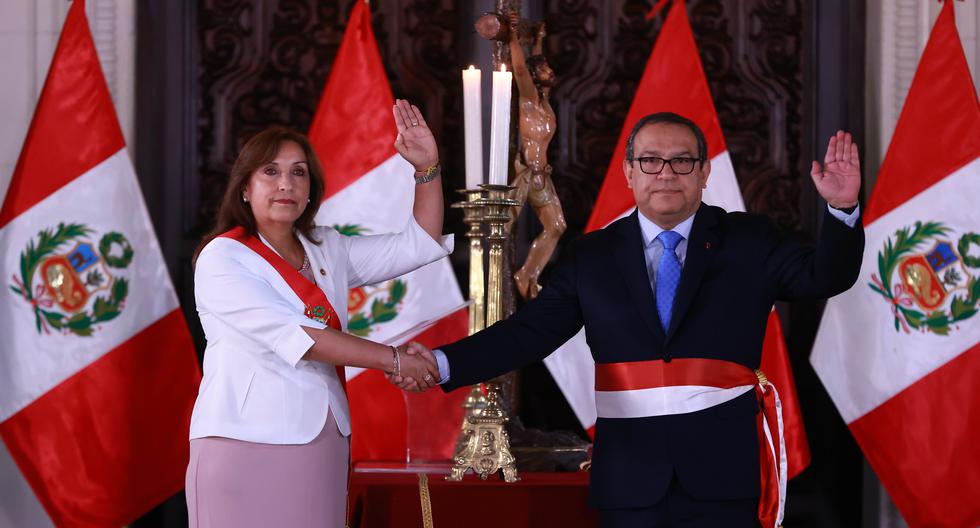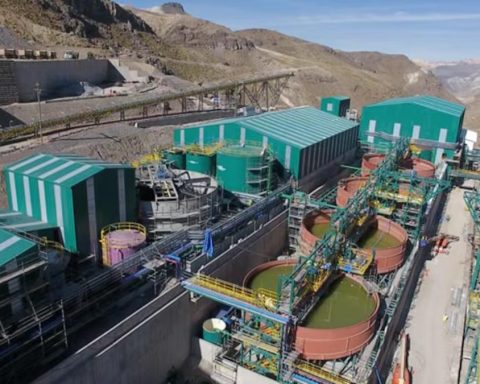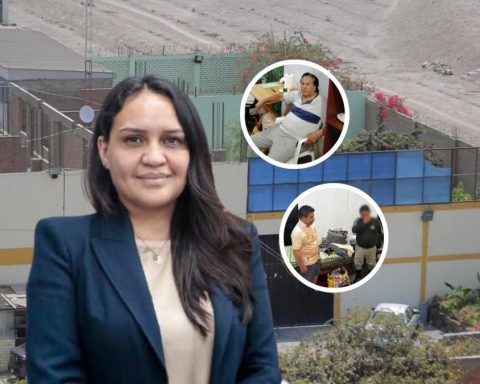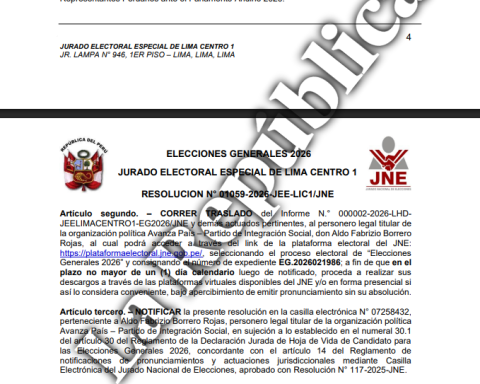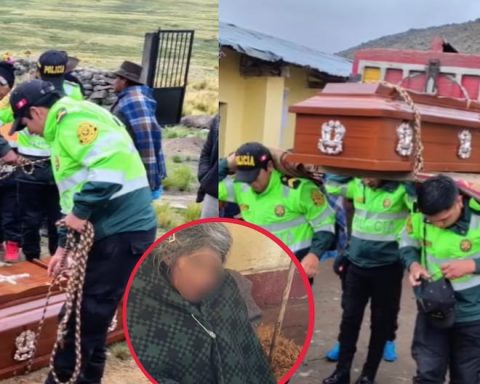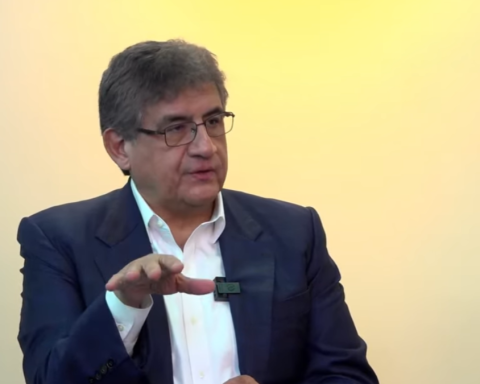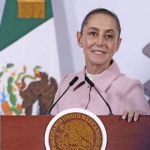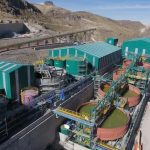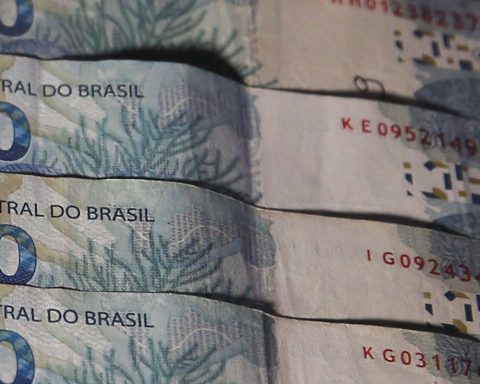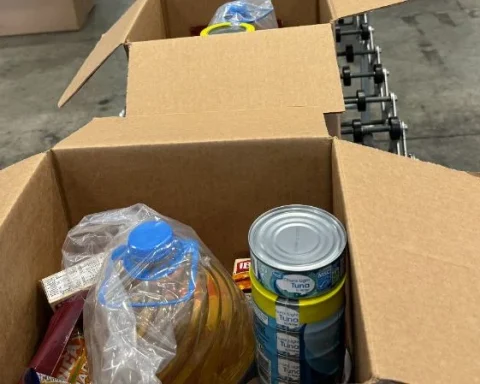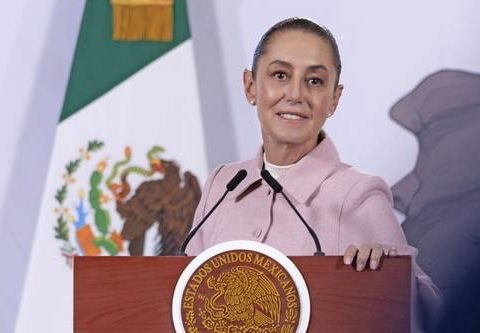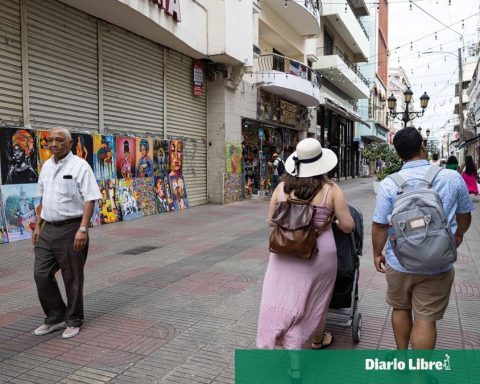Two weeks after assuming the leadership of the country, after the attempted coup of Pedro Castillothe President of the Republic, Dina Boluarterecomposed his ministerial cabinet, delegating to the lawyer Luis Alberto Otárola the presidency of the Council of Ministers (PCM) and incorporating four new members in the portfolios of Defense, Interior, Culture and Education.
SIGHT: Mexico delivered immigration documents to Lilia Paredes and her children
The swearing-in ceremony took place very early in the Government Palace. Shortly after, the president –during the closing ceremony of the 2022 academic year of the National School for Police Professional Training– argued that “the confrontation and polarization” have done a lot of damage to the country, and added that “we need to turn this page to dedicate ourselves to work for health, education, economic reactivation and security…”.
And it was along these same lines that the new chief of staff framed himself, who, in his first press conference, emphasized the government’s willingness to engage in dialogue because, he said, “the crisis has not been resolved” and the most urgent needs to be addressed needs of the population.
President Dina Boluarte swore in her new cabinet as Minister of State at the Government Palace. (Joel Alonzo/GEC)
“We are going to start a broad process of dialogue and national agreement. (…) I will make myself available to the political forces to draw up a basis for dialogue by successive approximations and that we all dedicate ourselves to rebuilding trust and political dialogue. In me you will find a dialogue person, even for those who criticize us and announce that they will not support the public policies that we will take (to Parliament) ”, he maintained.
However, the prime minister also made it clear that this path of dialogue will be followed “with the democratic forces, civil society organizations or unions that exercise the legitimate right to protest.” “We are aware and we have perfect knowledge of when and who have tried to disrupt the constitutional rule of law in the country,” he warned.
:quality(75)/cloudfront-us-east-1.images.arcpublishing.com/elcomercio/JJTFEFVLWBHGPDFTOLDI6TUBPY.png)
Luis Alberto Otárola Peñaranda became the premier of the ministerial cabinet of President Dina Boluarte. (CFM)
Immediately afterwards, he informed that he will coordinate with the president of the Congress of the Republic, José Williams, the date of presentation of the cabinet “in a short time” to expose his public policies before the Plenary. In addition, he anticipated that he will present a legislative agenda.
“We are going to prioritize consensus over disagreement,” he said, while welcoming Parliament’s decision to approve the early elections that, he added, must go hand in hand with “some important political reforms.” “The future of the country cannot go by authoritarian conceptions or that seek to subvert the constitutional order,” she pointed out.
SIGHT: Premier Otárola: “In me you will find a dialogue person, even for those who criticize us”
social agenda
Accompanied by some state ministers, Otárola stressed that the government of Dina Boluarte has received the “mandate” to restore public order – whose alteration has generated “sensitive deaths of compatriots”, he said -, adding that although this situation has been “decreasing in intensity”, it should not be forgotten that there is a pending social agenda care in sectors such as education, health, agriculture, citizen security, etc.
To this end, he called for the regional authorities and elected councilors to join efforts with the central government, who will take up their posts on January 1, and announced that he will do the same with the National Agreement to which, he specified, representatives of mypes and SMEs will be incorporated. and of “other sectors that require a voice within this debate and high-level processing of agreements.”
:quality(75)/cloudfront-us-east-1.images.arcpublishing.com/elcomercio/FOBKFO6OLBBRVPUVVLXICLSSXY.jpg)
In his first dialogue with journalists as prime minister, Otárola also distanced himself from the government of Pedro Castillo. He offered to recover meritocracy in the State and stated that the administration of boluarte is committed to “consolidating the constitutional rule of law that begins with respect among public institutions.”
In addition, he established a position on the fight against drug trafficking and, in this context, announced that the so-called Peru Model will be resumed, which promotes the “alternative, comprehensive and sustainable development of producers who go from an illegal economy to a legal one, especially coffee growers.” , of cocoa and peasants who seek formalization through credit and installation of minimum infrastructure to get their products to the market”.
“The president (boluarte) is very clear about the assignment for each sector. We are not going to allow acts of corruption and we will have the Integrity offices as allies to detect in time the acts that affect the national treasury”, he said.
four changes
The Otárola cabinet, meanwhile, had its first Council of Ministers yesterday to refine some measures in the different sectors. The four new defense ministers, Jorge Chávez Cresta; of the Interior, Víctor Rojas; of Education, Óscar Becerra; and of Culture, Leslie Urteaga, who exhibit a previous relationship with their respective sectors.
IT MAY INTEREST YOU:
:quality(75)/dvgnzpfv30f28.cloudfront.net/03-26-2019/t_a1f142f8292546548ffc845396473a8b_name_5c50d17f2203d.png)
